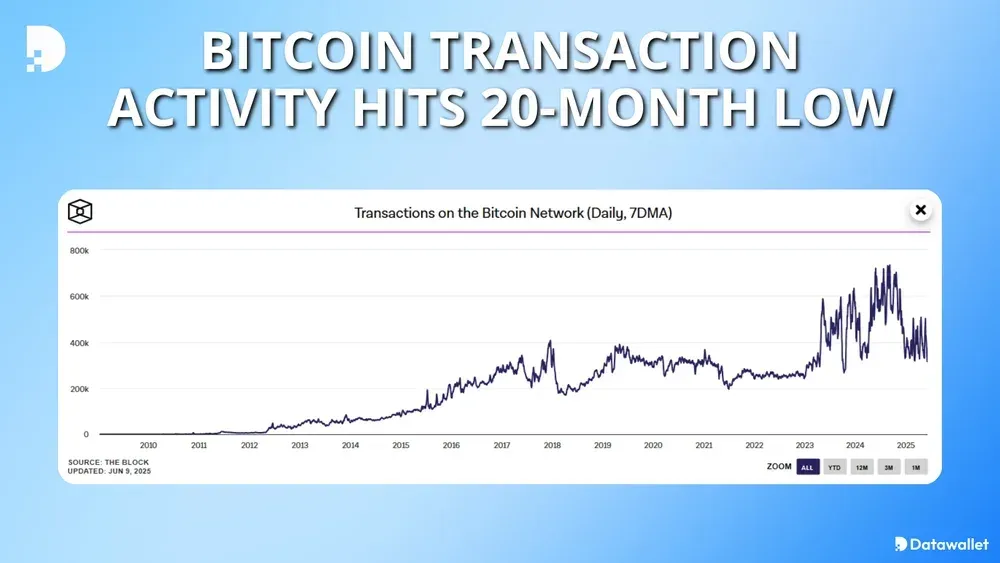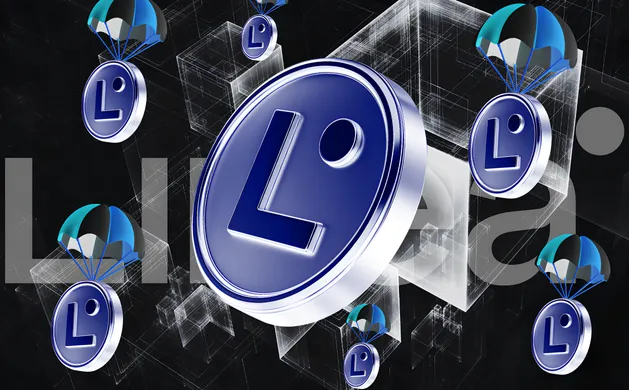BlackRock Bitcoin ETF Shatters $70B Record in 341 Days

GM. BlackRock’s Bitcoin ETF just broke $70 billion in assets in record time, outpacing gold’s rise and confirming BTC’s new status as a mainstream macro asset.
Meanwhile, the SEC chair backs self-custody rights, Coinbase unfreezes thousands of accounts after public pressure, and Ethereum unveils a GDPR-aligned privacy plan.
Here are the details. 👇
BlackRock Bitcoin ETF Shatters $70B Record in 341 Days
BlackRock’s IBIT fund has become the fastest ETF in history to reach $70 billion in assets under management, doing so in just 341 days. The milestone eclipses the previous record held by SPDR Gold Shares (GLD), which took 1,691 days to achieve the same mark.
The spot Bitcoin ETF, launched in January 2024, now towers over competitors like Fidelity’s fund, which holds $31 billion in assets. “IBIT just blew through $70 billion and is now the fastest ETF to ever hit that mark,” said Bloomberg’s Eric Balchunas.
IBIT has benefitted from sustained demand, logging 34 consecutive days of net inflows while accumulating 2.8% of the total Bitcoin supply as of April, per Arkham Intelligence. Though BlackRock itself does not own Bitcoin, it manages the assets on behalf of its clients through custodial arrangements.
Surging interest in Bitcoin ETFs coincides with macroeconomic jitters and growing skepticism toward fiat stores of value, fanned by the Trump administration’s aggressive tariff policies. Bitcoin and gold have both rallied as investors reposition amid inflation and debt concerns.
SEC Chair Backs Crypto Self Custody Rights
SEC Chair Paul Atkins said that Americans have the right to self-custody their crypto assets, calling it a “foundational value.” He made the comments during the agency’s final Crypto Task Force roundtable, which focused on DeFi and decentralization. Atkins argued the government shouldn’t block users from managing their own digital property on blockchain networks.
He also criticized the SEC’s former leadership for restricting innovation and warned against applying outdated rules to emerging crypto systems. Under his direction, the agency has softened enforcement and invited input on custody and staking reforms. Atkins has now asked staff to explore rulemaking that would formalize protections for decentralized software usage.
Coinbase to Unfreeze Accounts Due to Popular Demand
Coinbase CEO Brian Armstrong said the company slashed account freezes by 82% after designating it a top internal issue. The fix came from changes to Coinbase’s machine learning infrastructure, which identifies fraud patterns that often trigger account restrictions. Armstrong said affected users should contact support to resolve any ongoing access problems.
Complaints about locked accounts have persisted for years, including cases of users frozen for months or longer. Coinbase faced renewed criticism after a recent data breach exposed over 70,000 customer accounts. Armstrong credited Dor Levi, hired in April, with leading the overhaul of Coinbase’s detection and restriction systems.
Ethereum Plan Aims To Align With EU GDPR Rules
A new Ethereum privacy roadmap proposes modular design changes to help the network comply with Europe’s General Data Protection Regulation. The proposal was authored by developer Eugenio Reggianini and recommends off-chain data storage and cryptographic safeguards. These techniques would shift legal responsibility to the application layer while preserving decentralization.
Privacy-enhancing technologies like zk-SNARKs, homomorphic encryption, and modular storage are core to the framework. The model splits duties across Ethereum’s layers, reducing on-chain data exposure and allowing for MiCA GDPR-compliant processing. Adoption would depend on community and regulatory support, but could mark a turning point in Web3 privacy standards.
Data of the Day
The Bitcoin network’s average transaction volume dropped to 317,000 per day last week, its lowest level since October 2023. Despite BTC trading near all-time highs, blockspace demand has thinned, and low-fee transactions are making it through. One such transaction was mined by MARA with a fee of just $0.01.
Developer Mononaut said it sat in the mempool for a month before being picked up by Slipstream, MARA’s low-fee pipeline. Recently, Bitcoin Core devs published an open letter urging against censoring non-standard transactions. The letter drew backlash from figures like Samson Mow, who accused the group of enabling spam.

More Breaking News
- The Paraguayan president’s X account was hacked to falsely announce Bitcoin as legal tender, promoting fake bonds and donation wallets before being quickly debunked.
- ETF giants ProShares and Bitwise have filed to launch Circle-linked funds just days after CRCL’s IPO, betting on the stablecoin firm’s market traction.
- Sony’s Soneium blockchain announced a gaming incubator with Astar and Startale, aiming to boost consumer app development in its 7-million-user Web3 ecosystem.
- Strategy has added another 1,045 Bitcoin worth $110M to its BTC treasury, bringing total holdings to 582,000 BTC, or around 2.8% of the coin’s maximum supply.
- Australian authorities have charged four individuals after a sweeping raid dismantled a $123M crypto laundering ring linked to shell companies and seized property.
- OpenSea hit its highest user count since 2023 after OS2 exited beta, but trading volumes still lag far behind the platform’s 2022 NFT market peak.
- Musician Jonathan Mann turned his NFT tax disaster into a song after earning $3M, losing it in a crash, and owing $1.1M in taxes he couldn't pay.
- Hong Kong is piloting Chainlink’s interoperability protocol for its CBDC tests, simulating complex cross-border asset settlements between public and private blockchains.
For the latest updates on digital asset markets, follow us on X @Datawalletcom.
.webp)
Written by
Jed Barker
Editor-in-Chief
Jed, a digital asset analyst since 2015, founded Datawallet to simplify crypto and decentralized finance. His background includes research roles in leading publications and a venture firm, reflecting his commitment to making complex financial concepts accessible.







